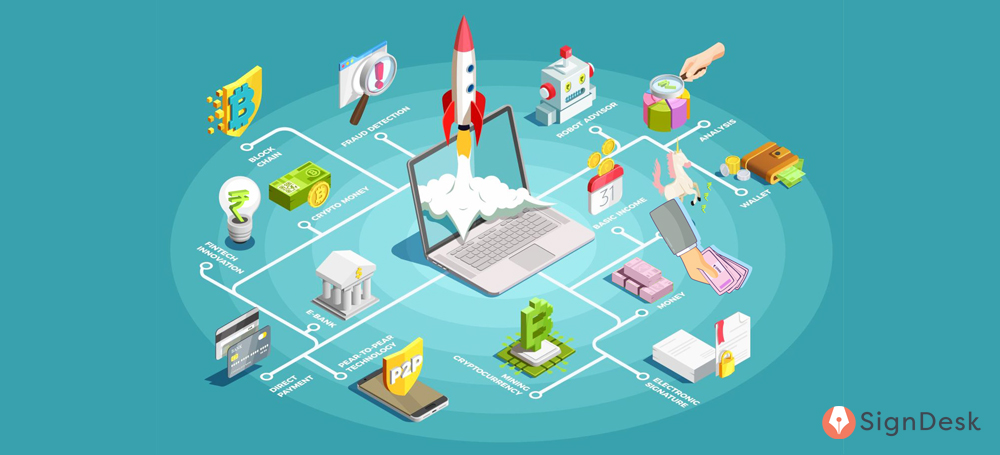With the emergence of Bitcoin since 2008, there has been an ongoing focus on digital currencies that come with extra security, speedy transactions, and better financial infrastructure. The blockchain will extensively impact all of these applications and help build easy, and cost-effective financial transactions.

The bitcoin system is decentralized wherein no central authority can track, approve or secure transactions on the bitcoin network. This means that a bitcoin’s database is secured with cryptography. But the blockchain network is a publicly viewable online ledger, that records all transactions, with each network user on the blockchain retaining a copy of the ledger.
Here are some ways how the Blockchain will change the functioning of traditional businesses globally:
Financial Transfers
The technology can be used instantly and cost-effectively to exchange currencies globally. Such capabilities will solve global remittances, settlements, cross-border currency exchanges and interbank transfers. During September 2016, over 50 global financial institutions have joined the blockchain consortium in order to explore its possibilities of distributed ledger technology (DLT).
Smart Contracts
Blockchain smart contracts are self-executing computer programs that facilitate the sale of digital goods with the use of activation codes sent to you via blockchain only after payment is received and recorded in the ledger. With use of the blockchain, all physical objects will be digitally sold, verified and secured.
Smart contracts do raise a lot of legal issues like:
- Their automatically enforcing nature challenges the traditional form of signing a contract.
- These contracts cannot be canceled even if it is by force or signed unconsciously.
- Contracts/ ledgers can be viewed publicly. This makes it prone for third parties to potentially track and individual’s contract.
Decentralised Organisations
A blockchain does not have a single person who will possess any record. Instead, once shared in the block, all people connected to the network can view the contract, or, ledger.
Decentralised organizations raise legal issues like:
Individual responsibility may be difficult to define as there exists ultimate responsibility. Since organizations management is automatically managed by the computer network, legal systems will have to decide as to who would be held responsible. Similarly, the legality of such computerized services will question its credibility.
Storage And Data Transfer
Information pertaining to anything can be stored or transferred via a blockchain. Identity information could be stored and verified via a ledger and this will reduce fraud on peer rating sites. Such identity verifications raise privacy concerns on the right to privacy within such applications. Creating such information repositories can result in massive amounts of data breach.
Modification Of Current Laws
The blockchain technology will continue to generate new possibilities in the way we interact and exchange information. However, these possibilities come with challenging and legal issues within existing laws of a state. An overview and modification of existing laws pertaining to the blockchain innovation must be overlooked to help mainstream this innovative construct.